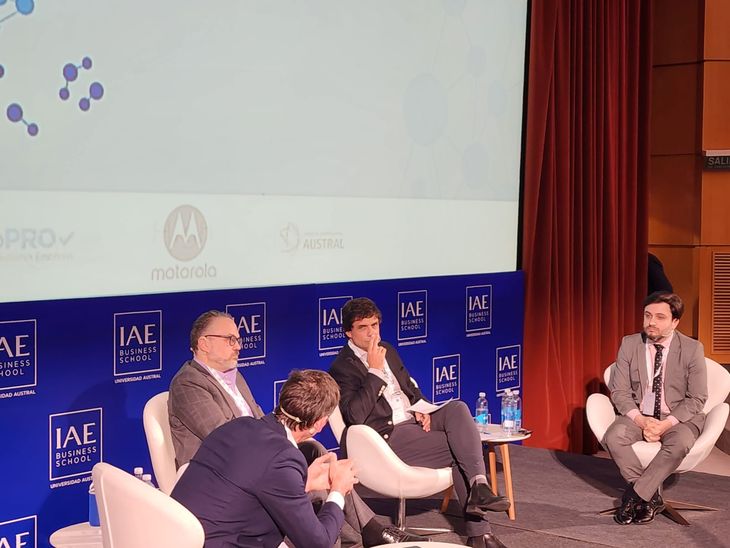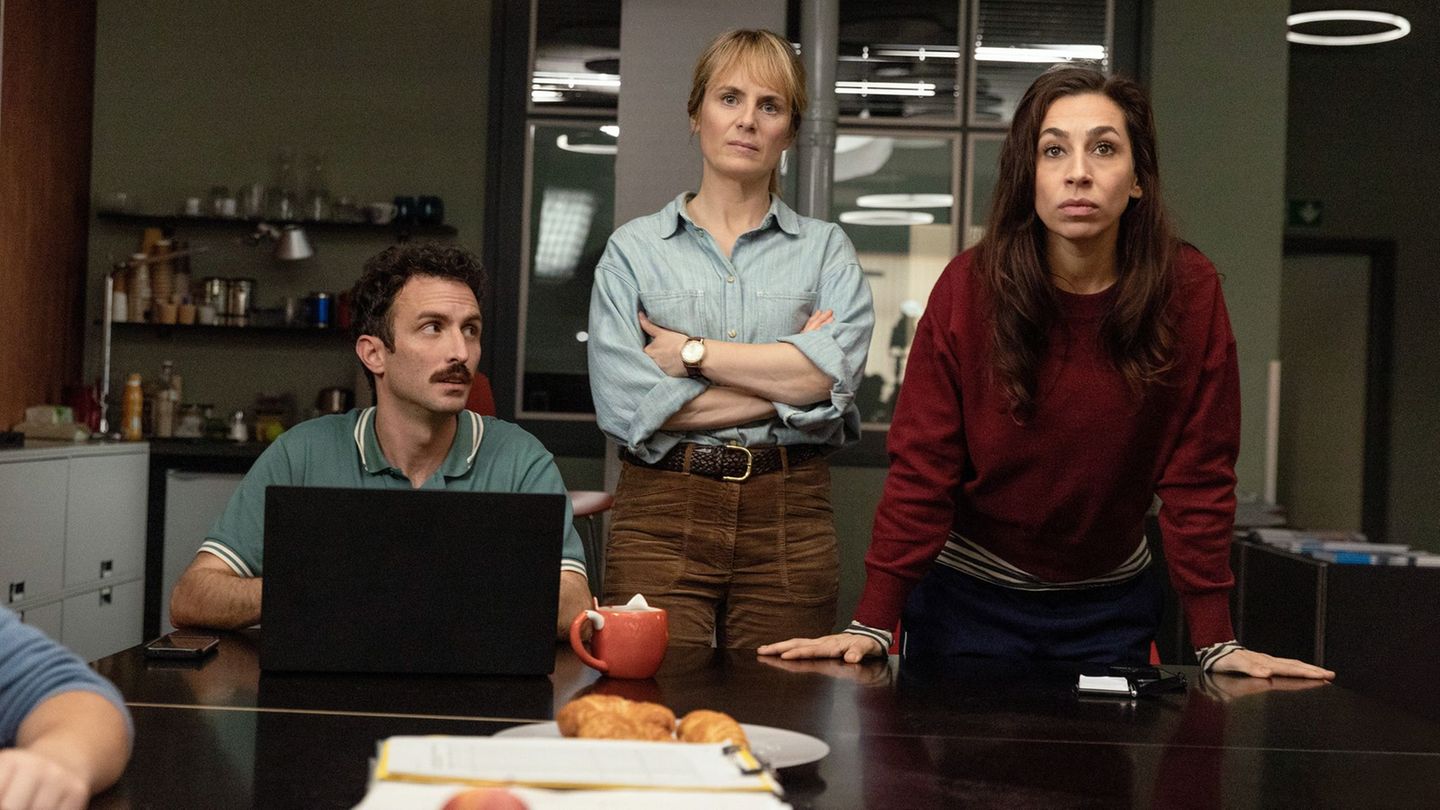Although with nuances, they agree that the way out of the crisis affecting Argentina must be sought within market policies and none of them carries out a disruptive proposal with the rules of capitalism.
There is also a consensus regarding the depth of the problems that the country is dragging and all suggest that the challenges are huge. And although few details have been revealed so far by politicians as to how they would resolve them, in the presentations they made these days, common points emerge regarding key issues such as the need to move towards fiscal order, preserve the currency value or reform labor legislation.
Of course, the referents of the political parties propose different implementations, but one fact to take into account is that, in the debates, in general, there seems to be more agreements than irreconcilable positions.
In short, the conformation of the electoral offer of the candidates with the most possibilities of reaching the presidency offers “predictability”, a key element when planning business. Although, they are concerned that the issue of legal certainty in campaign speeches is practically absent.
Frustration
However, after years of frustration and devaluation of the word of politicians, the spirit of not a few businessmen is cautious, they are in “wait and see” mode, according to an important industrialist told Ámbito. It is notorious that vast sectors of society show little interest and expectations for political proposals. In this sense, not a few businessmen are quite sure that “really” things are going to change.
It is that the majority diagnosis converges in the need for Argentina to leave behind a way of doing politics that did not give good results, as shown by the economic and social indicators.
Most company managers agree with economists regarding the need to carry out an ordering of the economy, which is politically complicated to carry out and which will arouse resistance.
In this sense, they see that Sergio Massa could carry out reforms with a higher level of acceptance (because he has union support) than the candidates of Together for Change. Others argue that “it was Peronism that facilitated a political system consisting of spending more than what is collected”, one of the main causes of the country’s economic crises. Along these lines are those who bet on Patricia Bullrich or, more radically, Javier Milei.
But there are also those who warn that next year the country’s situation could improve significantly due to the recovery of agricultural production, the start-up of the Néstor Kirchner gas pipeline and the takeoff of sectors such as mining – this activity has been growing at “Chinese” rates. “-, Inter alia. “Let’s hope that these improvements serve to carry out the reforms that the economy needs and we don’t continue to behave like rich children who think that fortune is inexhaustible.””, sentenced an important businessman.
coincidences
During the last week, different events took place that brought together the most prominent businessmen, politicians, economists and diplomats in the country. On Thursday, the Inter-American Council of Commerce and Production (CICyP) held its monthly lunch; At night, at the residence of the United States ambassador, Marc Stanley, the anniversary of the independence of that country (July 4) was celebrated in advance, and on Friday the annual meeting of the alumni of the IEA Business School. As it could not be otherwise, politics was the dominant theme in these meetings.
And, a fact that stood out in all these events, is that the three parties with the most electoral possibilities have a similar diagnosis of the country’s economic problems.
This was exposed at the IAE Summit 2023, where economists representing the entire range of options of the main political forces in dispute presented. In a first panel were Matías Kulfas, Hernán Lacunza and Ramiro Marra, and then it was the turn of Marina Dal Poggetto, Roberto Feletti and Paula Español.
WhatsApp Image 2023-07-02 at 11.39.50 AM.jpeg
The six economists agreed that it is necessary to stabilize the economy and redirect the growth process to reduce poverty. Kulfas, who was Minister of Productive Development under President Alberto Fernández, was the first to speak. The way out is to make a “productive export leap”, but “it depends on two factors. The first, to have sectoral programs and give strength to the industrial sectors. The second question, macro stability”.
He also argued that, given the high level of inflation, gradualist recipes are no longer useful. And in a topic that was particularly well received by the audience, he pointed out that, in labor matters, “We must end the trial industry.” Marra, candidate for head of government for La Libertad Avanza, raised the need to reduce public spending. “We need to lower the structure of the State to lower costs and be more productive.”
WhatsApp Image 2023-07-02 at 11.39.49 AM.jpeg

Kulfas retorted by warning that two thirds of public spending is on social benefits, to which the libertarian leader replied that it is possible to lower the other third. Lacunza, former Minister of the Economy during the administration of Mauricio Macri, helped put the debate on track by recognizing shared responsibilities. And he specified that “If you don’t stop spending more than what you collect, no monetary regime will work. If the Central Bank is an insatiable source to finance the Treasury it will not work. This rationalization is not done by law. Let’s not start designing programs without thinking that everything starts with the control of public spending”.
Dal Poggetto was blunt in pointing out that “Argentina once and for all has to build a currency. There is no credit in an economy that does not have currency”.
WhatsApp Video 2023-07-02 at 11.39.48 AM.mp4
Private initiative
“The majority of Argentines today choose property and private initiative, the freedom to undertake, the freedom to trade, merit, equal opportunities, but also the republican values of our National Constitution.” This was stated by Marcos Pereda, the president of the CICyP, at the opening of the lunch to which Javier Milei was invited to speak before more than 250 businessmen.
The presidential candidate for Libertad Avanza devoted most of his presentation to the history that led to Argentina’s “decline”, with few details about what his government plan would be, despite the precise questions asked by businesswoman Bettina Bulgheroni , in her capacity as CICyP director, summarizing the concerns of those present. Milei maintained that “Politicians prefer the present claw of the State. There was a fiscal deficit in 112 of the last 122 years. Since the beginning of the 20th century there have been 22 crises. Of those 22, 20 had fiscal origin. Today the deficit reaches 12 points of GDP. We are in a risk zone. Argentina is the greatest serial defaulter in modern history.”
The detailed description of the Argentine decadence contrasted with the few definitions of concrete measures, themes that the audience expected from Milei. In any case, Milei managed to get more than one son of the businessmen attending the CICyP meeting to vote for him. For the more experienced, Milei’s penetration among the youngest does not cease to attract attention and although they believe that she will do a good individual vote in the PASO, they do not believe in her projection due to the lack of representatives in the interior and in the suburbs. bonaerense.
Source: Ambito




